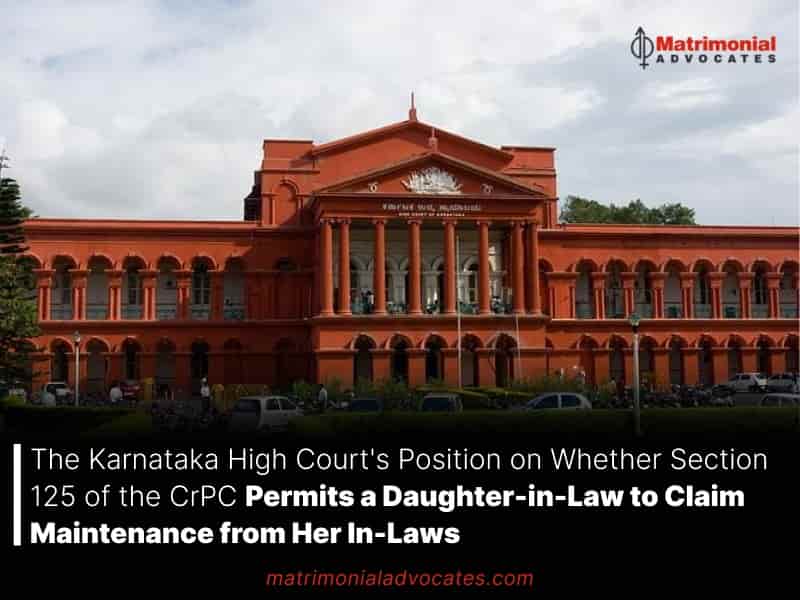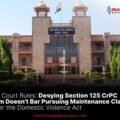
The High Court answered the question in negative pointing out that Section 125, CrPC envisages that wives, parents and minor children can claim for maintenance.
Karnataka High Court Review: The Karnataka High Court, in its assessment of the current review petition filed under Section 19(4) of the Family Court Act, 1984, disputing the validity of the Magistrate’s ruling granting maintenance to the petitioners’ daughter-in-law and her children under Section 125 of the CrPC, conducted a meticulous examination led by Justice V. Srishananda and the Bench. After careful scrutiny of Section 125 of the CrPC, the court concluded that a daughter-in-law is not entitled to make a maintenance claim against her parents-in-law under this provision. The legal framework restricts such claims to wives alone, excluding daughter-in-laws.
Context and Arguments: The respondent and her children initiated a petition under Section 125 of the CrPC, seeking maintenance due to the alleged neglect by her parents-in-law following her husband’s demise. The Magistrate granted Rs. 20,000 per month to the wife and Rs. 5,000 to the children. In response, the parents-in-law lodged a revision petition contesting the Magistrate’s authority to entertain the petition under Section 125 of the CrPC.
The petitioner’s counsel contended that the Magistrate lacked jurisdiction to entertain the respondent’s petition under Section 125, CrPC. Conversely, the respondents argued that the maintenance award was justified as the petitioners failed to provide support to the respondent and her children after her husband’s passing.
Court’s Analysis: The Court meticulously analyzed Section 125, CrPC, which deals with “Order for maintenance of wives, children, and parents.” Following a thorough examination, the Court determined that a daughter-in-law cannot claim maintenance from her parents-in-law under this provision. It underscored that Section 125, CrPC, only permits wives and minor children to seek maintenance, while parents are entitled to claim maintenance from their adult children. Based on this interpretation, the Court reversed the ruling in favor of the respondents.





